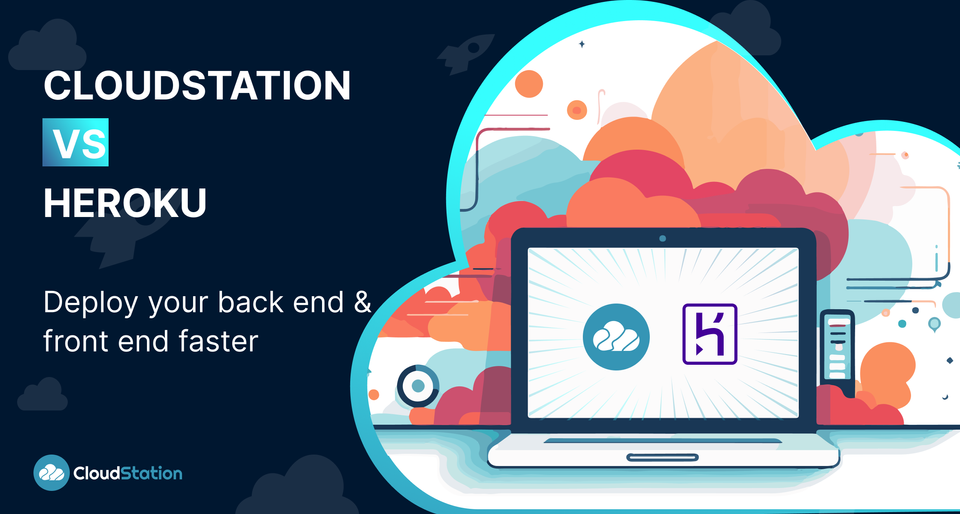CloudStation vs. Heroku

Discover the main differences between CloudStation and Heroku in terms of deployment, database support, microservices architecture, persistent storage, and pricing. Choose the best platform for your needs.
Choosing the right platform for deploying your applications can be a game-changer. Let's dive into the unique aspects of CloudStation and Heroku to help you make an informed decision.
In the evolving world of app deployment, two platforms often come up in discussions: CloudStation and Heroku. Both are powerful, but they serve different needs and preferences. This article outlines their key differences to guide developers in selecting the ideal platform for their projects.
Key Differences
Deployment Focus
- CloudStation: Supports full-stack deployment including frontend, backend, databases, and microservices.
- Heroku: Primarily focuses on backend applications like web apps and APIs.
Database Support
- CloudStation: Offers built-in database services such as PostgreSQL, MySQL, Redis, and MongoDB, with features like auto-scaling, backups, and snapshots.
- Heroku: Provides managed databases primarily PostgreSQL and Redis, with the possibility to add more via add-ons.
Microservices Architecture
- CloudStation: Features native Docker support and handles monorepos allowing independent deployments of services.
- Heroku: Supports microservices through multiple apps but lacks native monorepo support and has limited Docker capabilities.
Persistent Storage
- CloudStation: Includes persistent storage volumes crucial for stateful applications.
- Heroku: Uses an ephemeral file system with no option for persistent storage, impacting long-term data storage.
Pricing Structure
- CloudStation: Utilizes a pay-as-you-go & tier based pricing model based on usage, which can be cost-effective for varying scales of use.
- Heroku: Offers tier-based pricing, including a free tier with limited capabilities, suitable for smaller projects or initial testing phases.
FAQ
- What types of projects are best suited for CloudStation?
CloudStation is ideal for projects that require comprehensive full-stack deployment capabilities, including both front-end and back-end development, complex database management, and persistent storage solutions. It's particularly well-suited for larger or more complex applications that demand extensive infrastructure and database support. - Can Heroku handle large-scale applications effectively?
Heroku can effectively manage large-scale applications, especially with its ability to easily scale web applications and APIs. However, it might require additional configuration and the use of add-ons for extensive database management and scaling, which could increase operational costs and complexity. - How does the pricing model of CloudStation compare to Heroku for startups?
CloudStation offers a pay-as-you-go pricing model that can be advantageous for startups because it allows them to pay only for the resources they use. This model is flexible and can scale with the growth of the company. Heroku, with its tier-based pricing including a free tier, might be more appealing initially for startups with limited budgets, although it might become less cost-effective as needs grow. - What are the main benefits of Heroku’s managed databases?
Heroku’s managed databases, such as PostgreSQL and Redis, provide developers with ease of maintenance, as Heroku handles the backend database administration tasks like patching, backups, and scaling. This can significantly reduce the overhead for teams that prefer to focus on application development without the complexities of database management. - Is persistent storage a major differentiator when choosing between CloudStation and Heroku?
Yes, persistent storage is a significant factor to consider. CloudStation provides persistent storage volumes, which are essential for applications that require reliable data retention and stateful applications. Heroku, on the other hand, offers an ephemeral file system that is reset every time the dyno restarts, which might not be suitable for applications that need long-term data persistence.
